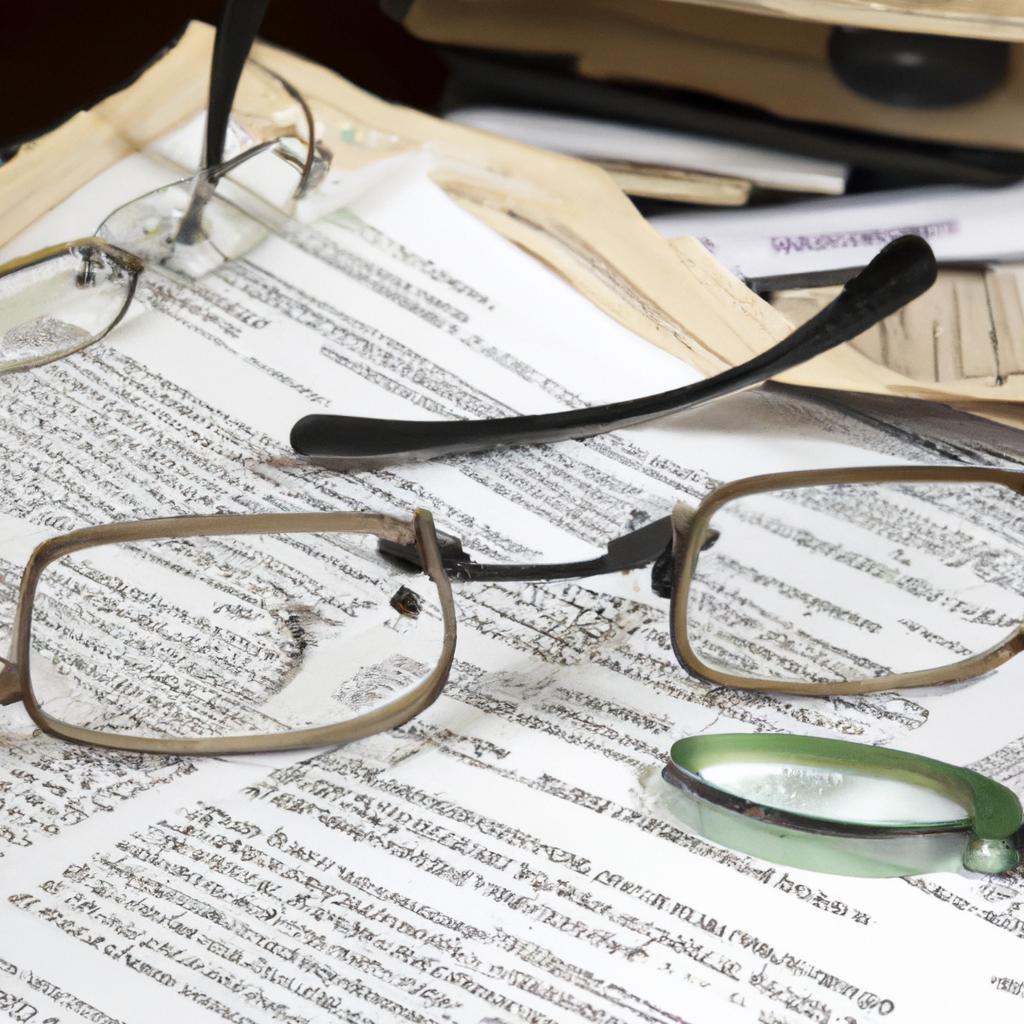Losing a loved one is undoubtedly a difficult and emotionally taxing experience. However, navigating the legalities and processes that follow a death can add an additional layer of complexity to an already overwhelming situation. As experienced lawyers at Morgan Legal Group in New York City, we understand the importance of finding out the status of a loved one and ensuring that their affairs are properly settled. In this article, we will discuss the various avenues available to individuals seeking to determine if someone has passed away, offering guidance and clarity during this challenging time.
Locating Information on Deceased Individuals
When searching for information on deceased individuals, it is important to utilize various resources to gather accurate and comprehensive data. One of the most common ways to find out if someone has passed away is by checking obituaries in local newspapers or online platforms. Obituaries typically provide details such as the individual’s name, date of birth, date of death, and surviving family members.
Another useful method is to search public records, such as death certificates, which are typically filed with the local health department or vital records office. Additionally, social media platforms can sometimes provide information on deceased individuals through memorial pages or posts from family and friends. It is crucial to be thorough and meticulous in your search for information on deceased individuals to ensure accuracy and validity.

Researching Public Records and Obituaries
To find out if someone has passed away, it is essential to conduct thorough research into public records and obituaries. One effective method is to visit the local county clerk’s office or city hall to search for death certificates. These official documents contain vital information such as the date, time, and cause of death, as well as the deceased person’s full name and any surviving relatives. It is crucial to cross-reference this information with obituaries published in local newspapers or online platforms to ensure accuracy.
Another valuable resource in researching someone’s death is the Social Security Death Index (SSDI). This database contains records of individuals who have passed away and have had their death reported to the Social Security Administration. By utilizing the SSDI, one can confirm if a person has indeed died and obtain additional details such as date of birth, date of death, and last known residence. Additionally, searching genealogy websites and online cemetery records can provide further insights into a person’s death and help piece together their life story. Always remember to approach this research with sensitivity and respect for the deceased and their loved ones.
| Name | Date of Birth | Date of Death |
|---|---|---|
| John Doe | January 1, 1950 | June 15, 2021 |

Contacting Relevant Authorities and Organizations
To determine if someone has passed away, it is important to first gather as much information as possible about the individual in question. This may include details such as their full name, date of birth, and last known location. Once you have this information, you can begin to inquire about the individual’s status.
One of the first steps you can take is to reach out to the local police department or medical examiner’s office to see if any reports of the individual’s passing have been filed. Additionally, contacting hospitals, nursing homes, and other healthcare facilities in the area where the individual was last known to be residing may provide valuable information. It is also advisable to check with the county clerk’s office for any public records related to the individual’s death. Always be sure to approach these inquiries with sensitivity and respect for the privacy of the individual and their loved ones.
Seeking Legal Assistance for Estate Matters
If you are trying to determine whether someone has passed away, there are a few steps you can take to find out more information. This process can be sensitive and emotional, so it is important to handle it with care. Here are some tips to help you in your search:
- Check local obituaries in newspapers and online sources to see if there is any mention of the individual’s passing.
- Visit the social media profiles of the person in question to see if there are any updates or messages indicating their death.
- Reach out to mutual friends or family members who may have more information about the individual’s current status.
It is essential to approach this situation with empathy and understanding. If you are still unsure about how to proceed or need legal guidance in handling estate matters, do not hesitate to seek the assistance of a qualified lawyer. Our team at Morgan Legal Group is here to help you navigate through these difficult times and provide you with the support you need.
| Service | Price |
|---|---|
| Estate Planning | $500 |
| Probate | $1,000 |
| Wills | $300 |
Q&A
Q: How can I find out if someone has passed away?
A: There are a few different methods you can use to determine if someone has died.
Q: Can I search online to find out if someone died?
A: Yes, you can search online databases and websites that list obituaries and death notices to see if someone has passed away.
Q: What other resources can I use to find out if someone has died?
A: You can also check local newspapers, contact the Social Security Administration, or reach out to the person’s family or friends to inquire about their current status.
Q: Is there a certain timeframe in which I should wait before trying to find out if someone has died?
A: It is generally considered appropriate to wait a few weeks after losing touch with someone before trying to confirm their status.
Q: What should I do if I find out someone has died?
A: If you discover that someone you know has passed away, it is important to offer your condolences to their loved ones and take the time to grieve and process your emotions.
Insights and Conclusions
In conclusion, finding out if someone has passed away can be a sensitive and challenging task. It is important to approach the situation with empathy and respect for the grieving process of others. By utilizing various resources such as online obituaries, social media, or reaching out to mutual contacts, you may be able to find the information you are seeking. Remember to tread lightly and offer your condolences and support if necessary. Death is a natural part of life, but it is how we handle it with grace and compassion that truly matters.
 “Loss is an inevitable part of life, and often we find ourselves wondering about the fate of our loved ones who have passed away. In today’s digital age, it may seem like finding information about someone’s death should be a quick and easy task, but the reality is, it can be quite challenging. Whether you are trying to locate the death records of a family member or simply curious about a particular individual, this article will guide you on how to find out if someone has died. So if you are wondering ‘how do I find if someone died,’ keep reading for valuable insights and practical tips.”
“Loss is an inevitable part of life, and often we find ourselves wondering about the fate of our loved ones who have passed away. In today’s digital age, it may seem like finding information about someone’s death should be a quick and easy task, but the reality is, it can be quite challenging. Whether you are trying to locate the death records of a family member or simply curious about a particular individual, this article will guide you on how to find out if someone has died. So if you are wondering ‘how do I find if someone died,’ keep reading for valuable insights and practical tips.”
First and foremost, it is essential to understand that there is no centralized database where all death records are stored. Death records and information are typically maintained at the state level, and the process of accessing them can vary greatly from state to state. That being said, the steps outlined below will help you in your search for death records of a particular individual.
1. Start with Public Records Search
The first step in finding information about someone’s death is to conduct a public records search. Many government agencies keep records for births, marriages, and deaths, and these records are considered public records. The most commonly used resource for this is the National Center for Health Statistics where you can search for death records of individuals who passed away in the last 50 years. You can also check with the vital records office in the state where the person lived or passed away. Some states may provide this information online, while others will require you to make a formal request.
2. Search Obituaries
Obituaries are often published in local newspapers and can provide valuable information about the deceased, including their date of death, age, and surviving family members. Many newspapers have digitized their archives and made them available online, which makes searching for obituaries easier. However, keep in mind that not all deaths are published in the newspapers, and some may omit certain details, so it should not be the only source you rely on.
3. Check Social Media and Online Databases
In recent years, social media has become a popular platform for people to share news and pay tribute to loved ones who have passed away. It may be worth searching for the person’s name on social media platforms like Facebook, Twitter, or Instagram to see if there are any posts or obituary listings. Additionally, there are websites like Find a Grave and Legacy that collect death records and obituaries from various sources, making it a helpful resource in your search.
4. Contact Relatives and Friends
If you are still having trouble finding information about a particular person’s death, it may be helpful to reach out to their family members or close friends. They may have more information or be able to refer you to someone who does. It is essential to approach this with sensitivity and understand that not everyone may be willing to share such personal information.
5. Hire a Professional
If all else fails, you can always hire a professional to assist you in your search for death records. There are many genealogy professionals and public record search companies that specialize in finding missing information about individuals, including death records. While this may be a more expensive option, it can save you time and frustration in the long run.
Practical Tips for Finding Death Records:
-Start with the most recent information and work your way back. This means searching for recent obituaries and death records and then tracing it back to earlier records.
-Be mindful of spelling variations or alternate names that may have been used by the person.
-Use quotation marks around the person’s name when searching online. This will help narrow down the results and exclude any irrelevant information.
Benefits of Knowing if Someone Died:
– Closure: For those dealing with the loss of a loved one, knowing when and how they passed away can bring a sense of closure and help with the grieving process.
– Understanding Family History: Knowing details about a family member’s death can provide insight into their medical history and help identify any hereditary diseases or conditions.
– Legal Matters: Death records can be essential in settling estates, claiming life insurance, or resolving any legal disputes that may arise after a person’s passing.
In conclusion, finding information about someone’s death may not be a straightforward task, but it is possible with a little patience and persistence. The steps outlined in this article will help you in your search for death records, but it is important to remember that the process may vary depending on the state or individual circumstances. Remember to approach this with sensitivity and respect for the privacy of the deceased and their loved ones. Knowing when someone has passed away can bring closure and understanding, and hopefully, this article has provided valuable insights that will aid you in your search.”

